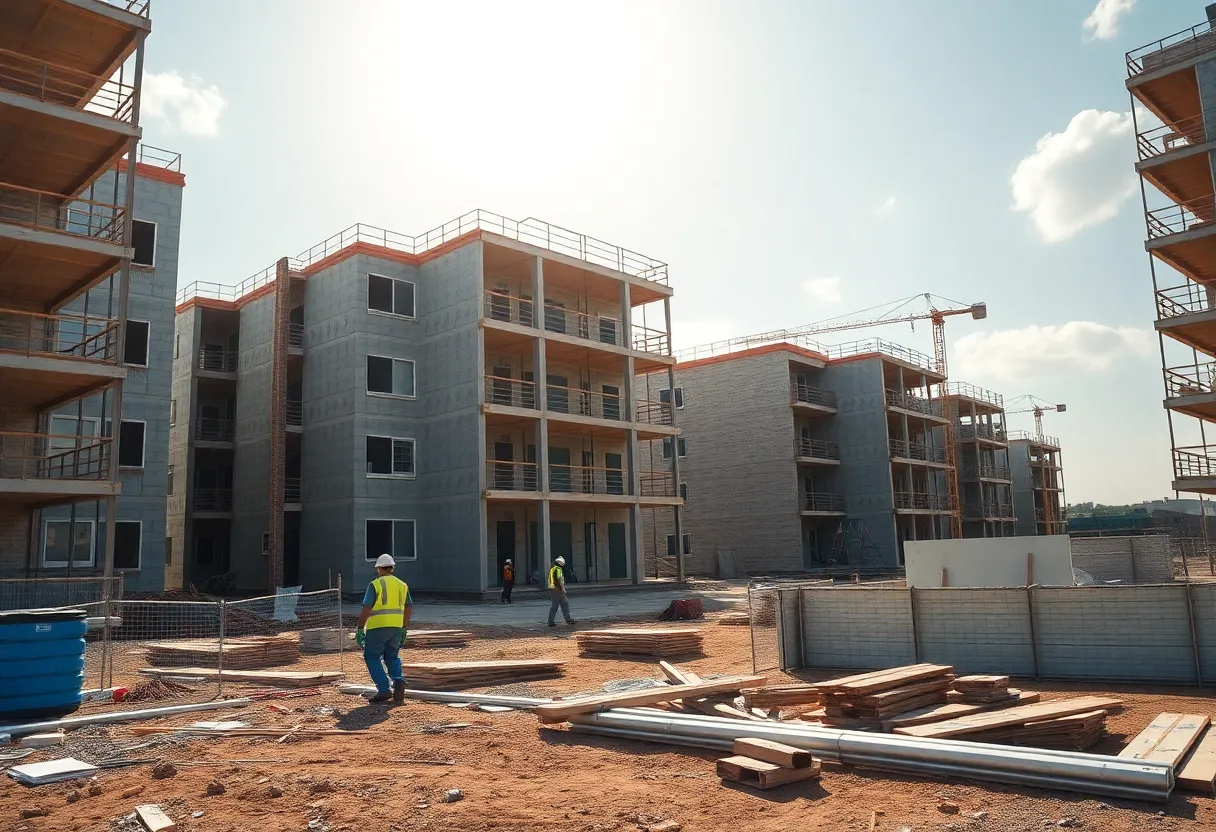News Summary
Austin, Texas, is experiencing a significant surge in remote work, ranking 11th in the U.S. with over 28% of its workforce working from home. The city has attracted thousands of remote workers post-pandemic, boosting its job market and economy. With major tech companies like Apple and IBM expanding their presence, Austin has recorded a 261% increase in teleworkers since 2014. As the trend continues, Austin leads the way in flexible work arrangements, improving work-life balance and economic resilience.
Austin’s Remote Work Revolution: A New Era for the Lone Star State!
Hey there! So, have you heard the latest buzz about Austin, Texas? This vibrant city has been making headlines for its impressive share of remote workers, especially when you consider how much the world changed after the COVID-19 pandemic. Well, buckle up because we’re diving into the exciting details of Austin’s remote work boom!
The Rise of Remote Work
Thanks to the pandemic, remote work has transformed from just a trend into a new normal for many folks across the country. A recent study from SmartAsset took a deep dive into the remote work scene by ranking 349 of the largest U.S. cities. The findings might just surprise you!
Leading the pack is Frisco, Texas, where a jaw-dropping 34.16% of the workforce is now working from home! That translates to over 40,000 remote employees. Who knew Texas was becoming the go-to spot for remote working? Meanwhile, at the other end of the spectrum, we have Odessa, Texas, with a mere 1.58%. Only around 1,036 workers there have the luxury of working remotely, highlighting a dramatic difference across the state.
Austin’s Impressive Ranking
Now, let’s get back to Austin. This tech epicenter has landed the coveted 11th spot in the U.S. rankings for remote work, with 28.13% of its workforce operating from home. That’s quite a refreshing number, especially when you consider that more than 22 cities in the U.S. boast over 25% remote workers!
Commuting in Frisco
Speaking of Frisco, most of its remote workforce still commutes, with most folks driving or carpooling to work. On average, they experience a 30-minute commute, which, in the grand scheme of things, sounds pretty manageable. It’s always nice to have some time to enjoy your favorite podcast or catch up on news!
Post-Pandemic Migration to Austin
One of the most remarkable trends that emerged during the pandemic was the influx of remote workers flocking to Austin. This city not only became a hotspot for remote workers but also saw the largest increase in remote workers in the U.S.! According to data, Austin added a net of 28,000 remote workers during the pandemic. This figure made up about 32% of all new residents looking for a more relaxed working lifestyle.
Growth in Job Market
But wait, there’s more! While many people transitioned to remote work, Austin also enjoyed a net increase of about 34,000 in-person workers. Talk about resilience! This growth is vital for the local economy and demonstrates that Austin’s job market is booming, despite the uncertainties that came with the pandemic.
Technological Boost
Austin’s thriving technology sector is contributing significantly to these trends. Big-name employers like Apple and IBM are creating job opportunities, drawing in talent looking to blend work and life. It’s no wonder the city has seen a whopping 261% increase in teleworkers from 2014 to 2023, easily surpassing the national increase of 207%.
Remote Work Friends
After Austin, there are some other cities that are embracing the remote work lifestyle. Raleigh, North Carolina follows closely with 24.5%, then Denver, Colorado at 22.3%, and Washington D.C. at 21.9%.
Austin Shines in Comparison
Austin even outshines the national average of remote workers, which sits at about 13.8%. According to figures reported by CoworkingMag, nearly 24.9% of Austin’s workers have embraced the remote work model. It’s clear that Austin is leading the way for flexible working arrangements in a way that many other cities have not!
Final Thoughts
In conclusion, Austin is grabbing the spotlight as a top player in the remote work arena. With so many changes and developments happening, it’s exciting to think about what the future holds for work-life balance in this innovative city. Keep an eye on how Austin continues to adapt and thrive in this evolving landscape of remote work!
Deeper Dive: News & Info About This Topic
HERE Resources
USPS Considers Relocating East Austin Post Office
Austin’s Drone Initiative Aims to Boost School Security
U.S. Navy EA-18G Growler Fighter Jet Crashes in Washington State, Search for Missing Crew Ongoing
Austin Emerges as a Top Affordable City for Remote Workers Amid Banned Books Week Event
Austin Emerges as Leading City for Remote Workforce Growth
Hurricane Helene Aftermath: FEMA Battles Logistical Challenges and Misinformation Amid Recovery Efforts in North Carolina
Austin’s Wealthiest Residents Shine on 2024 Forbes 400 List
Trabuco Canyon Battles Rapidly Growing Airport Fire, Thousands Evacuated
Laurel County, KY Shooting Incident: Five Injured, Suspect at Large, Local Schools Closed Amid Ongoing Investigation
Oyster Celebrates $59 Million Series D Funding Amidst Thriving Remote Work Landscape in Miami
Additional Resources
- KXAN: Austin Leads U.S. Cities in Remote Worker Share
- Wikipedia: Austin, Texas
- NY Times: Where Are People Working Remotely
- Google Search: Remote Work
- Austin Monitor: UT Austin Eliminating Most Remote Work
- Google Scholar: Remote Work Trends
- Spectrum Local News: Remote Workers Moved to Austin
- Encyclopedia Britannica: Remote Work
- CultureMap Austin: Best Places for Remote Work
- Google News: Austin Remote Work








